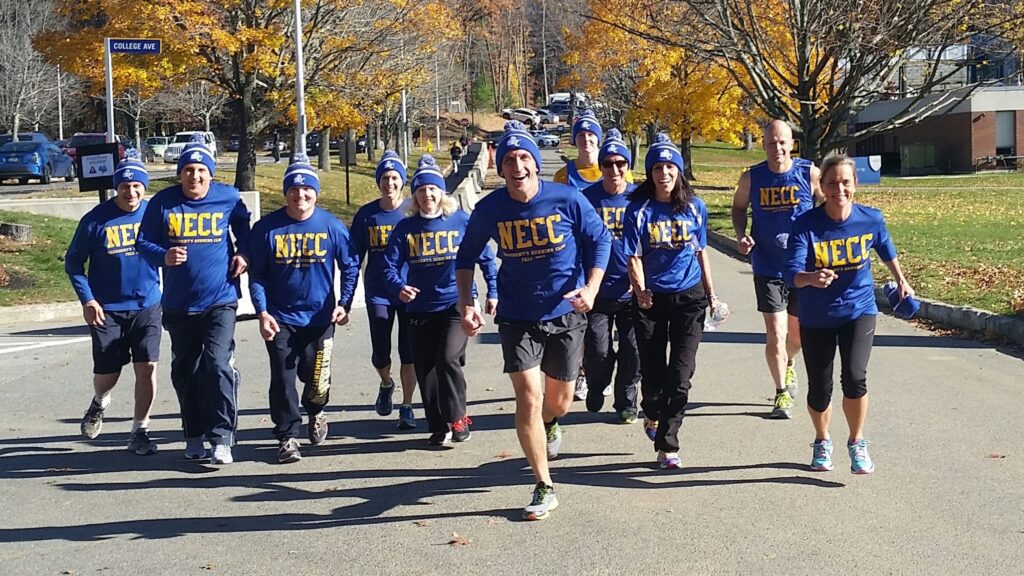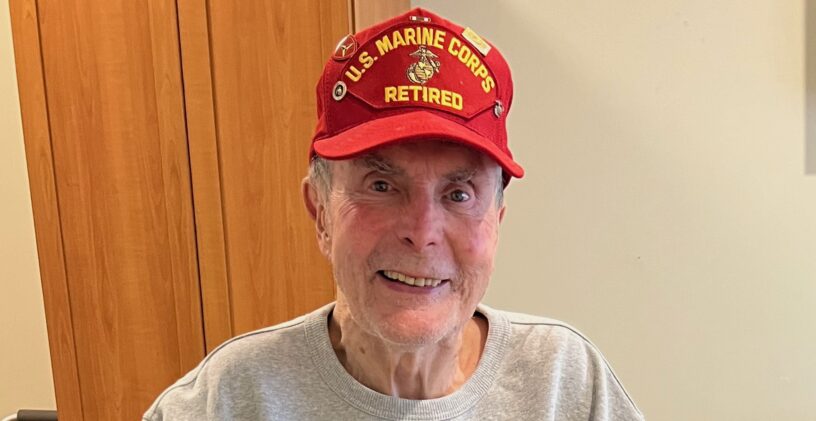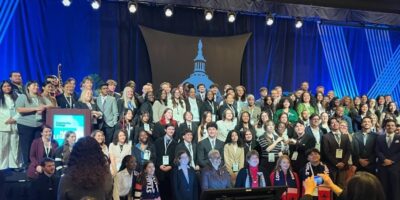“Latin for “Always Faithful,” Semper Fidelis is the motto of every Marine—an eternal and collective commitment to the success of our battles, the progress of our Nation, and the steadfast loyalty to the fellow Marines we fight alongside.”
United States Marine Corps
Frequent readers of “Running the Campus” know that I once lived with a foster family, was adopted, and reunited with my biological relatives as I began raising my own children. I shared some of this story in “Becoming a Father…and a Son” a few years ago.
Through these and other life experiences, I am fortunate to have had several father figures in my life to learn from and to celebrate each Father’s Day.
Today, though, I am particularly grateful to the man I call Dad, my adoptive father, Raymond Glenn.
This story is about him.
Call of Duty
I’m a runner.
Most days, I slip out of the house early in the morning, or occasionally out of the office at lunchtime, for a 3-5 mile stretch-of-the-legs along the river or around campus. On weekends, I like to go longer when I can, or mix the running up with some cycling or kayaking in the summertime.
I’ve been at it for years. It clears my head, energizes me, and makes the whole day feel good.
A few years after I started this job, I formed the NECC President’s Running Club (Our motto: “We run the campus!”) It was a way to connect with more students, as well as my own college colleagues, in a joyful activity that would help us all balance work and play (and give me a good excuse to slip out of the suit and tie and into a pair of sneakers at lunchtime).

Over the years, before COVID came along, the club had a great time promoting physical fitness and raising money for academic and scholarship programs at NECC with the annual Campus Classic 5K.
I’d love to say I came up with all this on my own, but there is a lot of credit to go around. Cheryl Goodwin came up with the club motto. Retired librarian Gail Stuart, assistant provost Sharon McDermot, and former CIO Jeff Bickford all helped coach the runners (including our always-inspiring “Couch to 5K” bunch!) My wife, Margaret Glenn, came up with the idea for the race, and we couldn’t have pulled it off without the amazing members of the NECC Alumni Board and nearly a hundred other volunteers.
And running?
I got that from my father.
Dad was a career Marine who took up vegetarianism and long-distance running back in the late sixties. Over the years, he competed in marathons from coast-to-coast, including Boston in 1984 (finishing in under three hours).
Growing up, I watched him go to bed each night by 7:30 so he could get up at 3:30 in the morning and go for a long run before riding his bike to work. On weekends, my sister and I would accompany him to races, wait for him at the finish line, and watch him collect his trophies.
But one of his proudest accomplishments as a runner, or, you could say, as a teacher or mentor, was a story he told me a few years ago for the first time: How he received the Navy Commendation Medal.
Here is Dad, in his own humble, matter-of-fact words:
I don’t know if I told you about how I used running to help accomplish my mission on my last tour in Vietnam.
I was placed in charge of a warehouse that handled aircraft parts. All aircraft parts required for the Marine planes in ‘Nam came from this warehouse. The morale was as low as it gets. The warehouse location system was a mess. Parts weren’t where they were supposed to be, if they were even in the warehouse at all. Supplies required to keep the aircraft up and running were not getting to where they needed to be when they needed to be there. Remember, this was before computers were used to record transactions, and everything was done by hand.
Marine aircraft are used to provide close air support for the Marine riflemen. It’s very important that the aircraft are able to carry out this mission. Marines on the ground are dependent on air support to carry out their mission.
The noncommissioned officer of the warehouse I took over from was a real #*&%. He treated the warehouse guys as if they were all dummies and provided no leadership to help them. Even though we were in a war zone, I would run every day. After about a week some of the guys asked if they could run with me. We would strip down to our underwear and go running. No rank, just a group of Marines out for a run.
It was not long before almost all the warehouse crew showed up for the noon run. The guys would open up and let me know what they thought the problem was with the warehouse support we were providing. They felt like they were looked down on by the officers, NCOs and the Marines that worked in the office because they worked in a warehouse.
They were all overworked—we were working seven days a week, twelve hours a day. Another thing that got to them was the fact that all the air units we were supporting would have a monthly trip to the beach for a party. But the warehouse guys were told that as long as one aircraft was flying, the warehouse had to be ready to support them. There were other things, but I felt if I could do something about these problems, then we could make progress.
I don’t believe I could have ever come up with a solution if it was not for the daily running.
I won’t go into all the details about how we fixed the warehouse problems as I have rambled on long enough as it is. But I will tell you the warehouse accuracy went up from 43% to 98%. We could not do anything about the hours, but I did help them understand how important it was to keep the aircraft units supplied with what was required in order to save the lives of the Marines on the ground. They did get their beach day, when the CO authorized a half a day shut down.
This was why I got the Navy Commendation Medal—really it was the running and a great bunch of warehouse Marines who got it with me.
Dad is the most disciplined and dutiful man I’ve ever known. He always does what he says he will do, and when he commits to something, he goes all the way—just ask any of the Marines who served with him.
As hard as it must have been to do, Dad gave up running when duty required him to become a constant caretaker for my mother, who had suffered a stroke and a series of illnesses. They were married for more than fifty-four years, and for much of the last few, he never left her side. Sometimes, he was there to hold her up as she leaned into him for support; and at other times, he was smiling with admiration, as she shuffled down the hall and out the door on her own.
He was there at her side, gently holding her hand, when she passed away in a hospital bed in Houston ten years ago.
Today, Dad is 84 years old and living with advanced Parkinson’s in a nursing home nearby. He is wheelchair-bound, and the disease has claimed most of his memory, except for fragments of his childhood and his service in the Marines.
When I visit, we listen to old radio shows like The Lone Ranger and The Shadow, which he first heard when he was ten years old, and we look through photo albums at pictures of a young, square-jawed, crew-cut Marine, leading by instinct, with miles and miles still ahead of him.
Semper fi, Dad.






